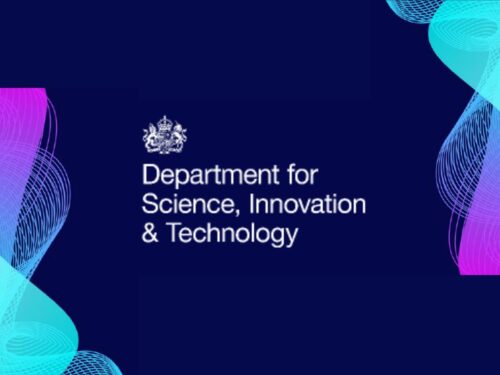Did you know that anyone can nominate someone for an honour? The Honours system recognises and celebrates outstanding...
Tech East’s guide to the public sector procurement process
Public sector procurement can be daunting and complex for small businesses, but with a good plan and preparation the opportunities and rewards to grow your business can be easily obtained.
The new Government continues to be supportive of SME’s and the new procurement regulations, which begin in February 2025, will provide even more access and transparency to assist SME’s being successful in winning contracts in the public sector.
So, where do you start?
Firstly, there is information freely available to SME’s on how public procurement works. There is no need to spend money on getting expert help until you have reviewed some of this information and determined this is an opportunity you’d like to invest time and effort in. A great place to start is Gov.uk which has numerous helpful resources for you….
- https://www.gov.uk/government/collections/transforming-public-procurement
- https://www.gov.uk/government/publications/procurement-act-2023-short-guides
Additionally, the Crown Commercial Service has a useful article…. https://www.crowncommercial.gov.uk/news/levelling-the-playing-field-the-benefits-of-working-with-smes-and-how-public-sector-organisations-can-make-it-easier-for-them-to-bid-for-work-procurement-essentials
You can find out the opportunities and types of contracts within the Public sector by using these free services…
The new Central Digital platform will soon be launched in 2025 and this will further consolidate the information in a single place, free of charge. (See https://assets.publishing.service.gov.uk/media/6720fe0a3758e4604742a8ab/20241029_CDP_Factsheet_v1.0.pdf )
Getting ready to do business in the public sector
Just like the private sector, especially when operating in regulated sectors, public sector organisations require businesses of all sizes to conform to some basic requirements of good governance and financial stability. These requirements can easily be met by SME’s, but it takes time to ensure you gather all the required information and have it ready.
Let’s start with Cyber Essentials. Every company, and individuals, operating IT equipment should ensure a good level of management of their infrastructure. Cyber Essentials is an effective, Government backed scheme that will help you to protect your organisation, whatever its size, against a whole range of the most common cyber attacks.
There are advanced levels of Cyber Essentials which include audits which have to be paid for, but these may not be necessary for lower value opportunities so start with just the basic level which is self-certified. You can find out more here… https://www.ncsc.gov.uk/cyberessentials/overview
Next is financial reporting and registration. Your company needs to ensure it is fully compliant with UK company regulations including VAT registration if applicable. Companies House and HMRC offer a wide source of free information to ensure your company is set up correctly.
As part of any public sector tendering process you may be asked to undergo a financial stability assessment. This requires the submission of your latest accounts and key financial KPI’s. It is worth spending time ahead of competing in a tender to get this information in a good order and uptodate.
Finally, social value. Social value in procurement is about making sure what is purchased by the public sector creates an overall positive impact on the UK, specifically our people and communities. It is divided into three main areas:
- social: this is about improving the wellbeing of individuals and communities, encouraging interconnectedness and mutual support among people
- economic: this focuses on promoting economic policies and business practices that uplift society’s wellbeing
- environmental: this stresses the importance of sustainable processes that take care of both the social and physical environment, ensuring a viable future for everyone
As a SME you play a critical role in delivering this social value, so having a clear statement around your impact in your community and the wider UK is vital, and this will often be requested as part of your tender response. It’s worth spending time thinking about the quantitative and qualitative contributions your company is making to the UK, and writing these down.
Contracts and frameworks
Public sector organisations will either produce a tender for a contract they are looking to fulfil directly or they will use a framework. Contracts issued directly by the buying organisation are open to all companies to bid for. A tender under a framework agreement requires the suppliers to have been already awarded a place on that framework first. So any tender notice under a framework agreement is not open to all suppliers, just those who have been awarded a place on that agreement.
Whatever method a buying organisation employs, it is worth getting involved in any pre-market engagement events, so you can understand the requirements and ready yourself for the tender.
How do I get on a framework?
Framework agreements come in 2 varieties, either a fixed term framework agreement or a dynamic purchasing system (DPS).
Fixed term framework agreements were fixed for a set duration and only allowed a single period of time for suppliers to apply for a space on that agreement under the old procurement rules. Under the new regulations, framework agreements can be opened a number of times to allow new suppliers to apply at regular intervals. They can also be more easily extended. So this is good news for SME’s. If you miss an application time window, or are unsuccessful in the first attempt, there will likely be another opportunity for you to try again in the future.
Dynamic Purchasing Systems (DPS’s, these will be replaced by Dynamic Markets under the new regulations in February 2025) are always open to new suppliers so you can apply at any time to be added.
Applying to these frameworks involves answering many questions and uploading clear descriptions of your business and services. Tony Addison, Director at Free Rein, said:
“Spend quality time getting onto the frameworks in the first place. Be clear and concise but don’t assume people reading it have either a detailed technical understanding or lack it. Public buying organisations want as many public sector organisations to use this as possible so write for the wider audience, breaking services apart if that makes it clearer.”
Being awarded a place on these framework agreements and DPS’s does not guarantee any new business opportunities, but they are used to build a supplier marketplace for public sector organisations to source from, so it is well worth your business being on the right agreements for your services. Public sector procurement/buying organisations, like Crown Commercial Services (CCS), YPO, NEPO, LPP are examples of these buying organisations and these operate the framework agreements and DPS’s. All of their websites have loads of information on upcoming agreements, how to apply, and support for SME’s, so worth checking them out.
What additional information will be required to apply for framework agreements?
One of the key pieces of information you will have to supply to be on a framework agreement is your organisation’s service offer. These will be listed on the digital system used for the agreement and in some cases can enable a buying organisation to direct award to you based on that service offer. So it is worth spending some time ensuring you have compelling service offers for the public sector.
The lengthy process of winning public sector work is due, in part, to the associated bureaucracy. Jon Wittle, managing director at Wiggly Amps, said the process involved reading “copious piles of documentation”. His following statement also gives a flavour for the levels of bureaucracy associated with public sector contracts:
“Like most businesses, there were large tracts of our day to day operations that were well understood, but not that well documented. When the contracting Authority asked for evidence of how we did things, we found ourselves writing a lot of it up for the first time as well as having to look closely at our existing documentation. However, it’s not all bad. We really got into this, and the introspective look prompted a lot of improvements.”
What happens once you’ve been awarded a place on a framework agreement or DPS?
Nothing will happen unless you continue to prospect for opportunities and respond when asked. The links listed earlier can help you find these. You can of course decline an opportunity offered if you think you are not in a good position to provide a solution or service.
Opportunities issued under DPS’s will ask for a competition between all qualified and awarded suppliers. The buying organisation will use a filtering process, which you would have had the opportunity to select appropriate categories applicable to your business through the application process, to narrow down to a set of suppliers to issue the competitive tender to. Therefore, if you’re not seeing the opportunities you would expect it is probably worth checking your filtering options.
On a framework agreement there are normally two processes a buying organisation can follow, either a call-off competition or a direct award call-off. Direct award call-off’s are based on your published service offers, so if your service offer is compelling and the right scope for the buying organisation, they can award to you without any need for further competition.
If they decide they want a wider set of solutions to choose from, they will issue a further competition call-off to all applicable suppliers on that agreement. You will have to answer any specific requirements they issue. The buying organisation will then assess those and make their choice based on the responses they receive from you and other suppliers. Again, you can decline to respond if you want to.
As an example, for services listed under Digital Outcomes and Specialists framework, buyers will post opportunities for which you will need to apply and be evaluated as part of a “call-off competition”. However this is a far quicker and simpler process than competing for public sector opportunities outside the framework and provides the opportunity to actively engage with opportunities when best suits your business.
How much does it cost to be on a framework agreement?
Most of the public sector procurement buying organisations, like CSS, do not charge to be on frameworks or DPS’s. Some private sector buying organisations who provide frameworks for the public sector, may charge a fee to be on an agreement, so worth checking.
However, most public sector buying organisations will charge a “fee” for any call-offs/contracts you win through the framework. This will be typically a percentage fee (and vary from agreement to agreement) of any awarded contract value/invoiced services from your business. So ensure you cost this fee into any of your solutions proposed, but you will only have to pay if you win business.
If you’d like a little more help, professional agencies exist to help you through the application process. A quick online search for “public sector procurement consultants” will pull up loads of results. However, fees for these services can often be expensive – and that’s on top of the public procurement organisations fees. If you have the time and the patience, you can win public sector contracts without the support of a consultant.
What about selling to the NHS?
As well as looking at the resources on the Crown Commercial Services website, we’d also recommend finding out more about the Eastern Academic Health Science Network which provides advice and support for digital businesses wishing to engage the NHS.
Good Luck!
DSIT Honours
Five alternative European tech clusters that are leading the way
Silicon Valley is the leader, but Europe is forming highly influential tech clusters in areas that are far from the...
Digital Cultural Awards. Meet the Winner of the Using Data category! – Noise Solution CIC
We’re thrilled to announce the winners of the 2025 Digital Culture Awards! Presented by the Digital Culture Network...




